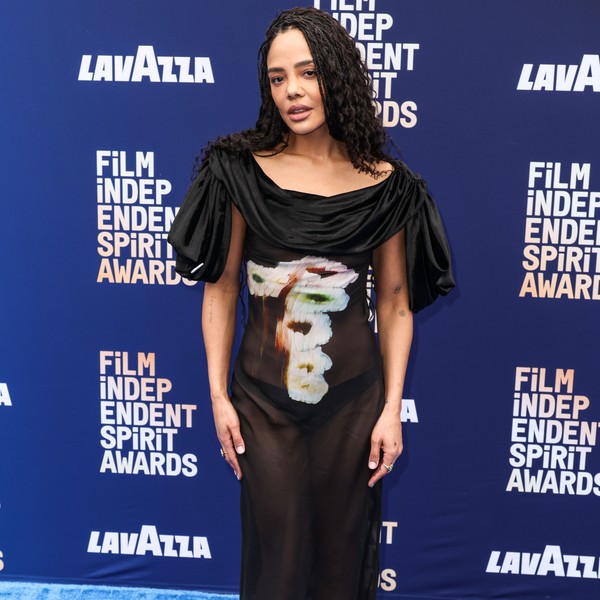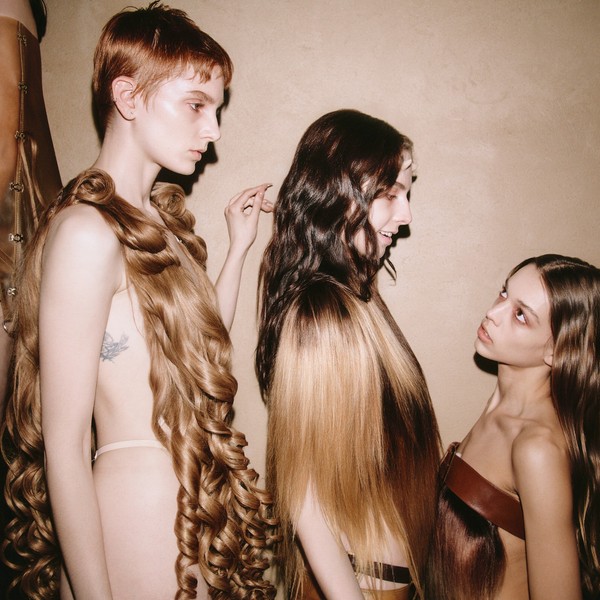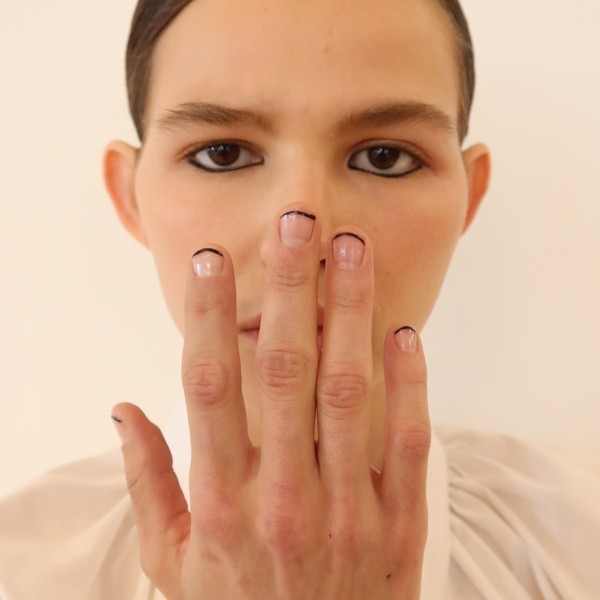My Day At The New Yorker Festival: Shame, Baby Ducks & Writing As Optimism
"Maybe The New Yorker attracts people who see art as a means of learning about the world."
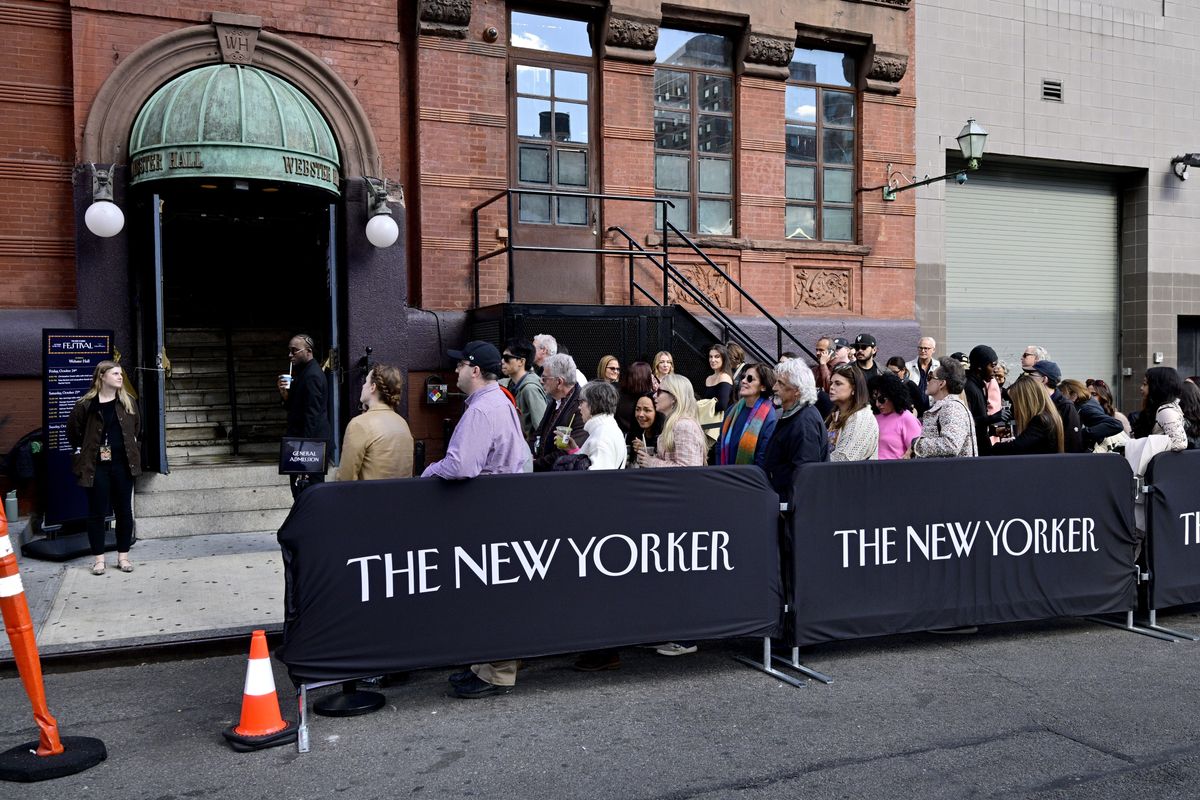
The New Yorker Festival is three days of panels, conversations, and performances by and for “the world’s most interesting people.” For me, the day is interesting before any official programming, when I find myself waiting in line with Lucy Dacus and Julien Baker.
I’ve got three events today—Deborah Treisman’s discussion with George Saunders and Zadie Smith, Jia Tolentino’s talk with Demi Moore, and Cressida Leyton’s discussion with Garth Greenwell and Ocean Vuong. I’m expecting to struggle to find a throughline, but everyone here seems to be tapped into something that steers them in the same direction. Not necessarily Jungian, but something more creative and less definable. Maybe it’s atmospheric. Maybe The New Yorker attracts people who see art as a means of learning about the world.
Zadie Smith, George Saunders and Deborah Treisman
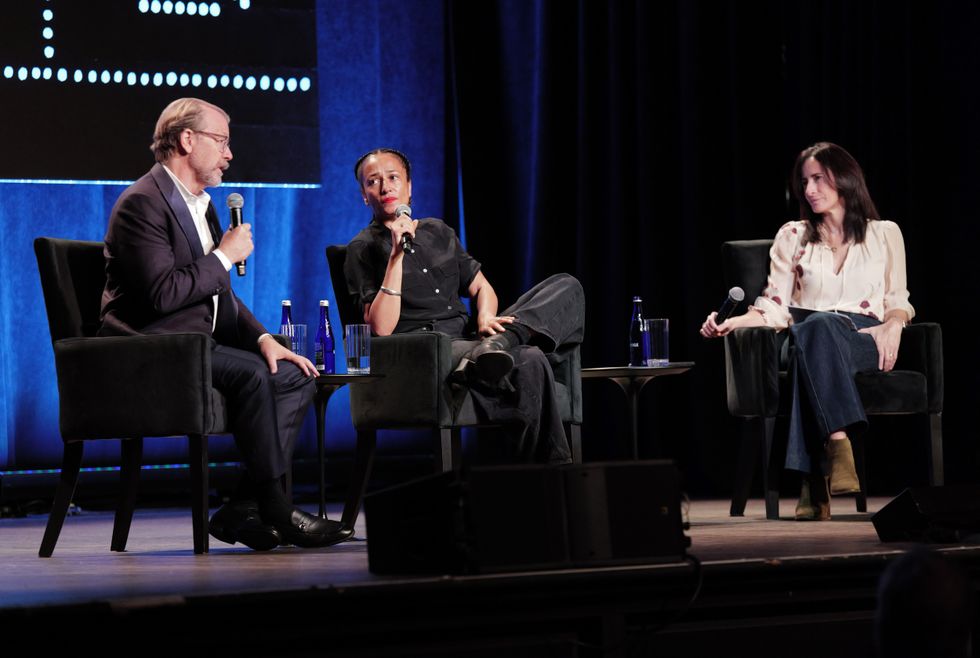
Craig Barritt/Getty Images for The New Yorker Festival
Before Deborah Treisman starts her conversation with George Saunders and Zadie Smith, we wish Smith a happy birthday. The discussion orbits around the point of writing.
“A book is a trap you get into,” jokes Saunders. “It’s a way of answering a question." For his novel, Lincoln in the Bardo, Saunders reveals he had two sentences of an outline: “Lincoln goes to a grave. Then Lincoln leaves the grave.” The questions that arose about what happened in between those sentences—that’s what became the novel.
“A novel is the way I find out about things,” says Smith. She uses historical fiction as a form of genealogy. As a young writer, she’d been skeptical to hear Alice Walker claim she heard voices while writing The Color Purple. Now, she’s a believer. “It’s like being spoken to,” she says. For Smith and Saunders, writing is as much getting spoken to as it is speaking to people.
With bated breath, Tresiman asks about politics. It’s noon on a Saturday—is it too early? I guess not. Saunders dives into a story about a kingdom with two wells—the well for the people and the well for the king. When the peoples’ well gets poisoned and they go mad, the king realizes that, to rule mad people, he must be mad himself. He drinks the poison, goes equally mad, and rules effectively. While that works for the king, we’re writers. “We need to drink the clean water,” says Saunders. “We need to assert ourselves without losing ourselves.”
“To write is an act of optimism,” says Smith.
Demi Moore And Jia Tolentino
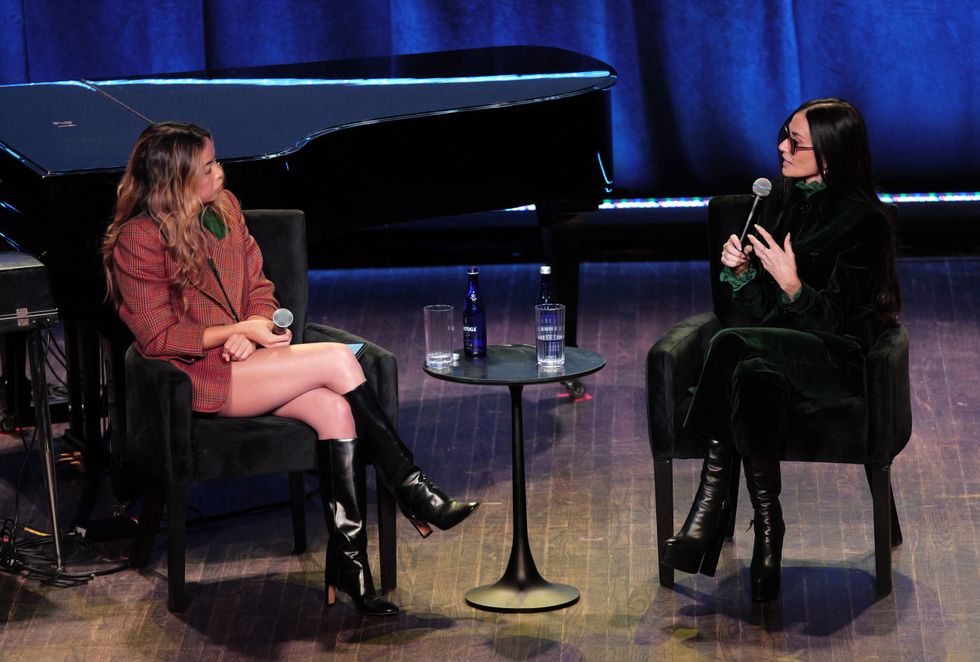
Craig Barritt/Getty Images for The New Yorker Festival
When Jia Tolentino introduces Demi Moore, she has to give the customary photography rules (no flash photography, use The New Yorker Festival hashtag, etc).
Moore only has one request: “Make sure it’s good lighting.”
We watch her watch herself in scenes from thirty years ago—she still mouths the lines without realizing. Almost all of Moore’s roles have been badass women, but also women with incredibly high stakes placed upon their bodies. G.I. Jane has Jordan fighting for women’s place in the Navy. Indecent Proposal has Diana wonder whether her body is worth one million dollars. And The Substance has Elisabeth/Sue’s job and sense of self revolve around her beauty. Moore’s career has spanned 40 years, and she’s been subjected to the same ageist critiques that Elisabeth has. “Roles choose you as much as you choose them,” she says.
“Women are socialized to practice violence against themselves in the pursuit of beauty,” adds Tolentino.
“There’s nothing that anyone has done to me that’s worse than what I’ve done to myself,” Moore says.
But re-watching her old scenes has become a way for her to face herself—not with a longing for the past or a criticism of the present, but with kindness and tenderness. She reflects on what she’s learned from each film—how G.I. Jane taught her strength (especially when training required running a mile at full speed until she threw up). When the conversation gets heavy, Tolentino asks Moore how she recharges.
“I’ve been rescuing abandoned baby ducks,” she says.
Ocean Vuong, Garth Greenwell and Cressida Leyton
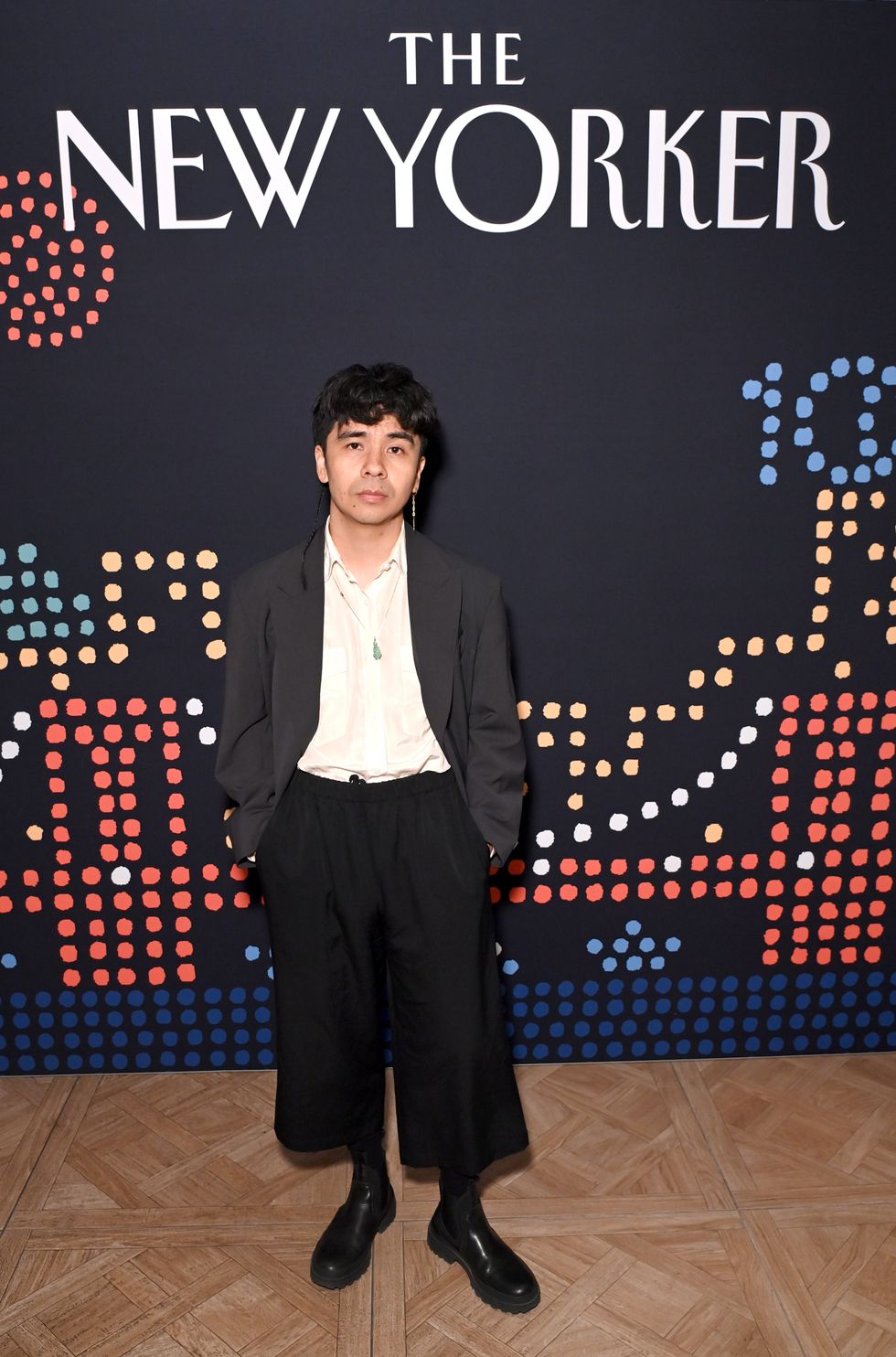
Bryan Bedder/Getty Images for The New Yorker Festival
“I didn’t know you could be a writer,” starts Ocean Vuong, speaking to Garth Greenwell and Cressida Leyton. “I thought a writer was pre-ordained by the government. They got you a cabin in the woods, you wrote a manuscript, and sent it to Barnes and Noble.”
I once ran into Vuong two days in a row—the first time, they had come to the NYU encampment. The next night, we were at the same party, mildly despairing about what it meant to be risking arrest during the day and partying with millionaires at night. At that time, being a writer felt frivolous for me. Interviewing meme pages at a time like this? I was thinking heavily about that Adorno quote: “Writing poetry after Auschwitz is barbaric.”
But for Vuong and Greenwell, writing wasn’t frivolous. “I don’t think any writer has the privilege of writing during peace,” says Vuong. On his book tour, he found a group of students protesting against book censorship. His voice wavers a little when he says, “Gosh, your generation is so much braver than mine.” I feel a little less ashamed to be where I am these days.
“I’m a writer because of shame,” says Vuong. He remembers his mother working in the nail salon, her hands destroyed by the chemicals. His mother would take his hands and marvel at how soft they were, toting him around to show the softness of his hands to all of her friends. At first, he was embarrassed. But then he realized, this was his mother's way of saying, “Look what I prevented.” If I weren’t sitting in the middle of the row, I would’ve gotten up to cry in the bathroom. The tears dry up when Vuong mentions people who write first pages with the intention of “grabbing a reader by the throat." His response is, “I don’t mind getting grabbed by the throat. Just not by a page.” I think writing is as much about shame as it is love. Maybe a little throat grabbing.
As a first-year grad student at Iowa, Greenwell met Louis—the man who would become his partner when he was a Spanish professor. After googling Iowa’s policy on student-teacher relationships, he googled Louis’s poems, and eventually the two went on the painstaking journey of translating them from Spanish to English. “That’s how I fell in love with him,” he says. Greenwell, who grew up gay in Kentucky, only found the queer Kentucky community through his book tour. He’d been desperate to leave his hometown, but now he feels desperate to know it. I understand him to an extent—my hometown is the last place I want to be. I’m not self-actualized enough to want to know it. Maybe that’ll come after my first novel.
Despite the Guttenberg printing press privitizing reading, writing is community building—it’s as much storytelling as it is conversation. “Writing is dependent on the reader to render it a lived experience,” says Vuong. “A book is text and pulp, but it becomes literature when someone reads it.”
“I never had any real allegiance to the label ‘writer,’” he continues. He remembers being a young writer (or young person-who-writes), and hearing Annie Dillard announce her retirement—not because of age or finances, but because she was finally satisfied. For Vuong, every book makes him view the world a little differently. “Maybe that’s the goal—not to write a book, but to see the world differently. A book is just a byproduct. After you write enough, one day you’ll get stuck seeing the world differently; you can live and experience the world without turning it into a product.”
Greenwell stares in awe. “That’s so beautiful. I want to die in the middle of a sentence.”

